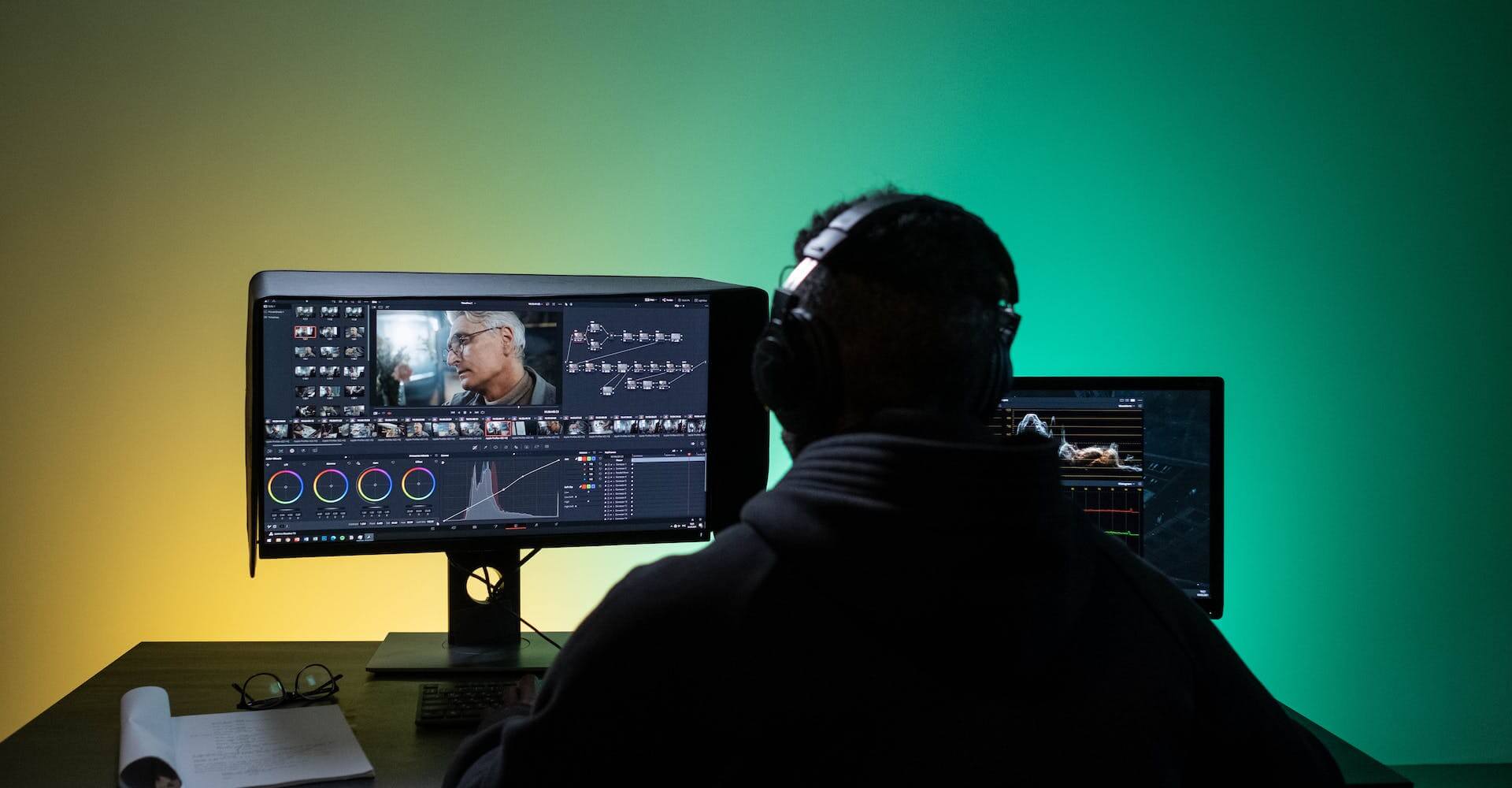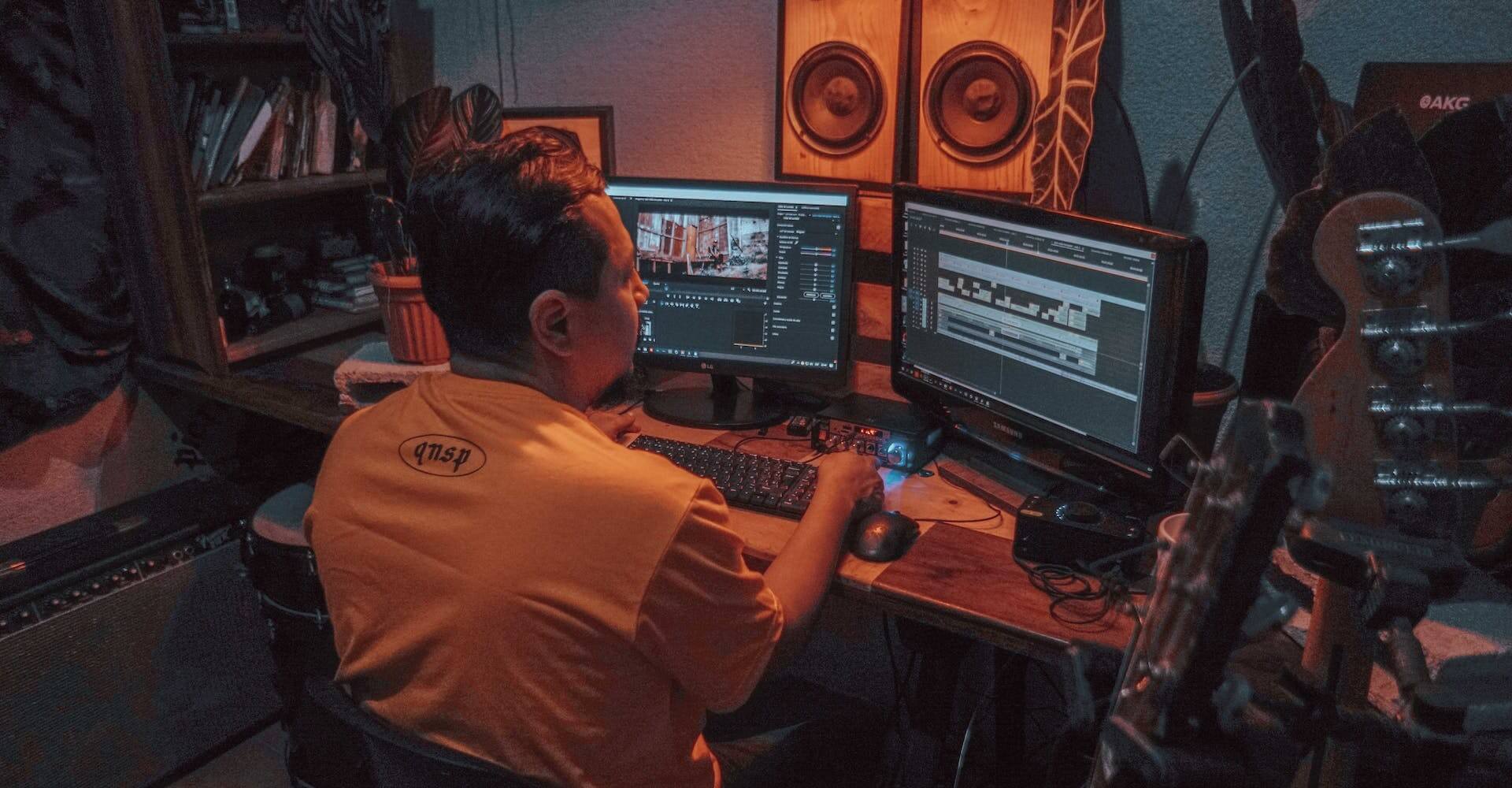The art of video editing is a fine craft that has become increasingly important in today’s digital age. With the rise of social media, YouTube, and streaming platforms like Netflix and Hulu, video editing has become an essential part of creating engaging and entertaining content for a wide range of audiences. Whether it’s a short promotional video for a business or a full-length feature film, skilled video editors are in high demand. In this post, we’ll explore the exciting world of video editing careers, including what it takes to become a successful video editor, the skills you need to develop, and the types of jobs available in this rapidly expanding field. Whether you’re looking for a new career path or just interested in learning more about video editing, read on to discover the opportunities and possibilities that await you in this dynamic industry.
Introduction: The rise of video editing careers in the digital age
In the digital age, video editing has emerged as a thriving and exciting career path. With the explosive growth of online platforms, such as YouTube, Instagram, and TikTok, the demand for visually captivating and professionally edited videos has skyrocketed. From short films and advertisements to vlogs and social media content, video editing plays a crucial role in captivating audiences and conveying messages effectively.
Gone are the days when video editing was limited to the realm of professional filmmakers and studios. Today, anyone with a creative vision and technical skills can pursue a career in this field. The accessibility of affordable editing software and the availability of online tutorials and courses have made it easier than ever to learn the craft of video editing.
Video editing careers offer a unique blend of creativity and technical expertise. As a video editor, you have the power to shape narratives, enhance storytelling, and evoke emotions through the art of visual storytelling. Whether you are piecing together raw footage, adding special effects, or fine-tuning the color grading, every decision you make influences the final outcome and impact of the video.
The demand for skilled video editors extends beyond traditional media outlets. Businesses, brands, and individuals alike are recognizing the power of video content to engage and connect with their target audiences. From corporate videos and product demos to social media campaigns and online courses, video editing skills are highly sought after in various industries.
Understanding the role of a video editor
Video editing is a crucial component of the filmmaking and content creation process. It involves piecing together raw footage, adding special effects, enhancing audio, and creating a visually captivating final product. The video editor is the skilled professional responsible for bringing all these elements together.
At its core, the role of a video editor is to transform raw footage into a cohesive and compelling story. They have the technical expertise to manipulate and arrange clips, trim unnecessary content, and create seamless transitions between scenes. With their keen eye for detail and understanding of storytelling techniques, video editors have the power to shape the narrative and evoke specific emotions from the audience.
Video editors work closely with directors, producers, and cinematographers to fulfill their vision. They collaborate to ensure that the edited footage aligns with the intended message and aesthetic of the project. This requires strong communication skills and creative problem-solving abilities, as video editors often face challenges such as mismatched shots, continuity errors, or technical glitches that need to be resolved.
In addition to assembling footage, video editors also play a significant role in enhancing the visual appeal of the final product. They have the technical knowledge to adjust color grading, apply visual effects, and optimize the overall visual quality. By incorporating these elements, video editors can create a polished and professional look that elevates the production value.
Audio plays a vital role in video editing. A video editor must have the ability to synchronize audio tracks, add sound effects, and adjust levels to ensure a seamless audiovisual experience. They understand the importance of clear and balanced audio, as it greatly contributes to the overall impact of the video.
Essential skills and qualifications for a video editing career
A strong foundation in technical skills is necessary. Proficiency in video editing software such as Adobe Premiere Pro, Final Cut Pro, or Avid Media Composer is paramount. Familiarity with these tools will allow you to manipulate footage, create seamless transitions, and apply visual effects to enhance the overall quality of the video.
Attention to detail is another key skill that sets apart exceptional video editors. This involves having a keen eye for composition, color grading, and audio synchronization. A meticulous approach ensures that every frame is visually appealing and that the audio elements seamlessly blend with the visuals, resulting in a cohesive and professional final product.

Creativity is an indispensable skill for a video editor. It involves the ability to think outside the box and bring innovative ideas to the table. Transforming raw footage into a visually captivating story involves making creative decisions, such as selecting the best shots, determining the pacing, and crafting a compelling narrative flow.
Strong communication skills are essential for collaborating effectively with clients, directors, and other members of the production team. Being able to understand the vision and requirements of the project and effectively communicate your ideas and suggestions is paramount in delivering a final product that meets or exceeds expectations.
While formal qualifications are not always mandatory, obtaining a degree or certification in film or video production can provide a solid foundation and validate your expertise. These programs often offer courses that cover various aspects of video editing, including storytelling techniques, visual effects, and sound design.
In addition to technical skills and qualifications, it is imperative to stay updated with the latest trends and advancements in the industry. This can be achieved through attending workshops, participating in online courses, or joining professional organizations and communities dedicated to video editing.
Exploring different types of video editing careers
The world of video editing offers a plethora of exciting career paths for those with a passion for storytelling and visual artistry. From blockbuster movies to captivating commercials, video editing is an essential component of the filmmaking process. But did you know that there are various types of video editing careers, each with its own unique set of skills and opportunities?
1. Film and Television Editing:
This is perhaps the most well-known and glamorous field of video editing. Film and television editors bring hours of raw footage to life, creating seamless and captivating narratives. They work closely with directors and producers to shape the story, choose the best shots, and enhance the overall visual aesthetic. From intense action sequences to heartfelt dramas, film and television editors play a crucial role in delivering an unforgettable viewing experience.
2. Advertising and Marketing Editing:
In the fast-paced world of advertising and marketing, video editors are responsible for crafting visually striking and persuasive content. They work closely with creative teams to bring concepts to life, combining footage, graphics, and sound effects to create engaging commercials, promotional videos, and social media content. Attention to detail, a keen understanding of target audiences, and the ability to convey a brand’s message effectively are key skills in this exciting field.
3. Documentary Editing:
For those passionate about telling real-life stories and shedding light on important issues, documentary editing offers a fulfilling and impactful career path. Documentary editors work with filmmakers and journalists to piece together raw footage, interviews, and archival material to create thought-provoking documentaries. Their ability to organize vast amounts of information and craft compelling narratives is crucial in bringing important stories to the screen.
4. Gaming and Animation Editing:
In the world of gaming and animation, video editors play a vital role in bringing characters, worlds, and storylines to life. They work closely with animators and game developers to edit cutscenes, trailers, and gameplay footage, creating immersive and visually stunning experiences. Attention to detail, knowledge of animation techniques, and a flair for storytelling are essential in this rapidly evolving field.
5. Online Content Editing:
With the rise of online platforms such as YouTube, Vimeo, and social media, video editing has become a thriving career path in the world of online content creation. Video editors in this field work with content creators, influencers, and brands to produce engaging and shareable videos. They have a keen understanding of online trends, quick turnaround times, and the ability to capture and retain viewers’ attention in a crowded digital landscape.
The tools and software used by professional video editors
Professional video editors rely on a wide range of tools and software to bring their creative visions to life. These tools have evolved significantly over the years, enabling editors to achieve stunning visual effects, seamless transitions, and captivating storytelling.
One of the most widely used software in the industry is Adobe Premiere Pro. This powerful editing platform offers a comprehensive set of features, such as timeline-based editing, multi-camera support, and advanced color grading capabilities. It allows editors to work with various video formats and provides a smooth workflow for seamless collaboration.
For adding visual effects and enhancing the overall visual appeal of the footage, Adobe After Effects is a go-to software. It enables editors to create stunning motion graphics, incorporate special effects, and add dynamic animations. This tool opens up a world of creative possibilities, allowing editors to transform ordinary footage into visually striking masterpieces.
In addition to these industry-standard software, video editors also utilize tools like DaVinci Resolve, Final Cut Pro, and Avid Media Composer, depending on their specific needs and preferences. These tools offer a wide range of advanced features, including color correction, audio editing, and sophisticated visual effects.
To ensure efficient workflow management, video editors often rely on project management software like Trello or Asana. These tools help them stay organized, track progress, and collaborate effectively with other team members, such as directors, producers, and sound engineers.
It’s worth mentioning that the hardware setup plays a crucial role in video editing as well. Powerful computers with high-performance processors, ample RAM, and dedicated graphics cards are essential for handling the demanding tasks involved in video editing, Having a calibrated monitor and accurate color grading tools ensures precise color reproduction and consistent visual quality.
Steps to kickstart your video editing career
To kickstart your video editing career, here are a few crucial steps to follow:
1. Acquire the necessary skills:
Start by gaining a solid foundation in video editing techniques and software. Familiarize yourself with industry-standard editing tools such as Adobe Premiere Pro, Final Cut Pro, or DaVinci Resolve. Take online courses, attend workshops, or pursue a degree in film or media production to enhance your technical skills and understanding of visual storytelling.
2. Create a portfolio:
Build a portfolio showcasing your best work to demonstrate your skills and creativity. Include a variety of projects, such as short films, music videos, corporate videos, or any other type of editing work you have done. Your portfolio should highlight your ability to tell a compelling story through editing, use of transitions, color grading, and other editing techniques.
3. Gain practical experience:
Offer your services as a freelance video editor or intern at production companies, advertising agencies, or media organizations. This will not only provide you with valuable hands-on experience but also help you establish connections in the industry. Collaborate with other filmmakers, videographers, or content creators to expand your network and broaden your experience.
4. Stay updated with industry trends:
The world of video editing is constantly evolving, with new technologies and techniques emerging regularly. Stay updated with the latest trends and advancements in the industry by following industry blogs, attending conferences, and joining professional organizations. This will ensure that your skills remain relevant and competitive in the ever-changing landscape of video editing.
5. Build a strong online presence:
Create a professional website or online portfolio to showcase your work and make it easily accessible to potential clients or employers. Utilize social media platforms to promote your skills and engage with the filmmaking community. Participate in online forums, share your knowledge, and seek feedback from industry professionals to continuously improve your craft.
Building a portfolio to showcase your skills and expertise
Building a portfolio is essential for showcasing your skills and expertise as a video editor. It serves as a visual representation of your work and allows potential clients or employers to assess your abilities and style.
To begin building your portfolio, start by selecting your best and most diverse video editing projects. Choose a range of videos that demonstrate your versatility, whether it’s commercials, short films, music videos, or corporate videos. Aim to include projects that showcase different editing techniques, such as storytelling, pacing, transitions, and special effects.

When organizing your portfolio, consider creating a visually appealing and user-friendly online platform. This could be a dedicated website, a video hosting platform like Vimeo or YouTube, or even a social media account solely for your professional work. Ensure that your portfolio is easy to navigate, with clear descriptions and categories for each project.
Remember to include a brief overview of your role in each project, highlighting your contributions and unique creative decisions. Provide context for each video, explaining the objectives, challenges, and any noteworthy achievements or feedback received.
Consider including testimonials or recommendations from clients or collaborators. Positive feedback and endorsements can add credibility and demonstrate your ability to work effectively with others.
As you progress in your career, continue updating and expanding your portfolio with new projects. Seek out opportunities to work on different types of videos or collaborate with other professionals in the industry. Building a diverse and impressive portfolio will help you stand out among competitors and attract potential clients or employers.
Don’t forget to showcase your passion for video editing and your commitment to continuously improving your skills. Consider including personal projects or side ventures that further demonstrate your dedication and creativity beyond client work.
Networking and finding opportunities in the video editing industry
While your skills and talent are undoubtedly important, making connections and building relationships with professionals in the industry can open doors to new opportunities and help you stand out from the competition.
One of the most effective ways to network in the video editing industry is to attend industry events, conferences, and workshops. These gatherings provide a platform for you to meet fellow editors, industry experts, and potential employers. Engage in conversations, ask questions, and exchange contact information to stay connected after the event. Networking events are also a great opportunity to showcase your work and receive valuable feedback from experienced professionals.
In addition to physical events, online platforms can also play a significant role in expanding your network. Joining online communities, forums, and social media groups dedicated to video editing can connect you with like-minded individuals and industry insiders. Participate in discussions, share your knowledge, and seek advice from experienced editors. You never know when a conversation or interaction online can lead to a new job or collaboration opportunity.
Another effective way to network is through internships or apprenticeships. Many video editing studios, production companies, and post-production houses offer internships to aspiring editors. These opportunities not only provide valuable hands-on experience but also allow you to build relationships with professionals in the industry. Even if an internship doesn’t directly lead to a permanent position, the connections you make during this time can be invaluable for future job prospects.
Networking is not just about meeting people; it’s about nurturing relationships and maintaining connections over time. Stay in touch with industry professionals by sending periodic updates on your work, sharing interesting articles or projects, and congratulating them on their achievements. Building a strong professional network takes time and effort, but the rewards can be significant in terms of career growth and finding exciting opportunities in the video editing industry.
Challenges and potential growth in the field of video editing
The field of video editing offers an exciting and dynamic career path, but it is not without its challenges. As technology continues to advance at a rapid pace, video editors must constantly stay updated with the latest software, techniques, and trends. This requires a commitment to lifelong learning and a willingness to adapt to new technologies.
One of the biggest challenges in video editing is meeting tight deadlines. Clients often have high expectations and require quick turnaround times for their projects. This can put significant pressure on video editors to work efficiently while maintaining a high level of quality.
Another challenge is the subjective nature of the work. Video editing involves making creative decisions that can greatly impact the final product. However, these decisions are often subjective and can vary based on individual preferences. Balancing client expectations with personal creative vision can sometimes be a delicate dance.
Despite these challenges, the potential for growth in the field of video editing is immense. With the rise of digital platforms and the increasing demand for video content, the need for skilled video editors is higher than ever. From commercials and films to social media content and online tutorials, video is becoming an integral part of our daily lives.
Video editing skills are transferable across various industries. From marketing agencies to production studios, there are ample opportunities for video editors to explore different sectors and work on diverse projects. Additionally, with the advent of video-sharing platforms, talented video editors can showcase their work and gain recognition on a global scale.
As technology continues to evolve, new avenues for video editing are emerging. Virtual reality, augmented reality, and 360-degree videos are just some of the exciting developments that video editors can explore. These advancements present unique challenges but also offer immense creative possibilities for those willing to embrace them.
Conclusion
From the behind-the-scenes magic of film and television to the growing demand for skilled video editors in the digital age, this field offers endless opportunities for creativity and growth. Whether you’re a seasoned professional or just starting out, there are plenty of resources and avenues to pursue a successful career in video editing. So grab your camera, get in the editing room, and let your creativity shine! We can’t wait to see the amazing projects you’ll create. Lights, camera, edit!







1 Comment
[…] Quay dựng phim, biên kịch , edit… […]